Test in production without watermarks.
Works wherever you need it to.
Get 30 days of fully functional product.
Have it up and running in minutes.
Full access to our support engineering team during your product trial
SOLID principles are five design principles that, when followed, can create robust and maintainable software entities. Robert C. Martin introduced these principles, becoming a cornerstone for object-oriented design. In C#, a popular object-oriented programming language developed by Microsoft, understanding and applying SOLID principles can significantly enhance code quality.
In this article, we will do a detailed review of Solid Principles in C# and their uses, and we will also see how you can use them to write reusable code structures by creating PDF documents using the IronPDF C# PDF Library.
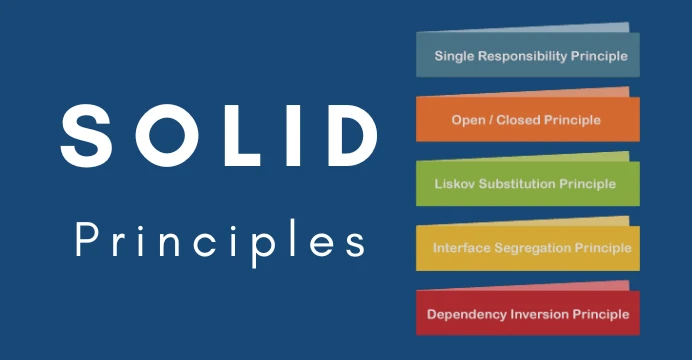
The Single Responsibility Principle states that a class should have only one reason to change, meaning it should have only one responsibility. In C#, this principle encourages developers to create classes focused on a specific task. For example, a class responsible for handling file operations should not also be responsible for database connections.
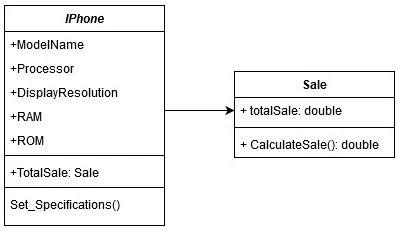
The Open/Closed Principle suggests that a class should be open for extension but closed for modification, enabling the extension of a module's behavior without modifying its source code. In C#, this is often achieved through interfaces and abstract classes, allowing for the creating of new classes that adhere to existing contracts.
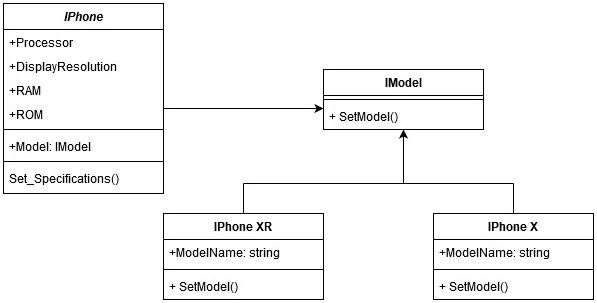
The Liskov Substitution emphasizes that objects of a superclass be replaceable with objects of a subclass without affecting the correctness of the program. In C#, this principle encourages polymorphism to ensure that derived classes can use their base classes interchangeably.
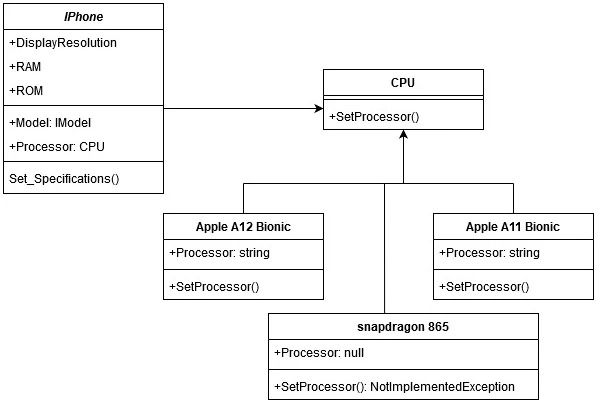
The Interface Segregation Principle advocates using small, specific interfaces rather than large, general ones. In C#, this principle discourages the creation of "fat" interfaces that force implementing classes to provide functionality they do not need. Instead, it encourages using multiple small interfaces tailored to specific needs.
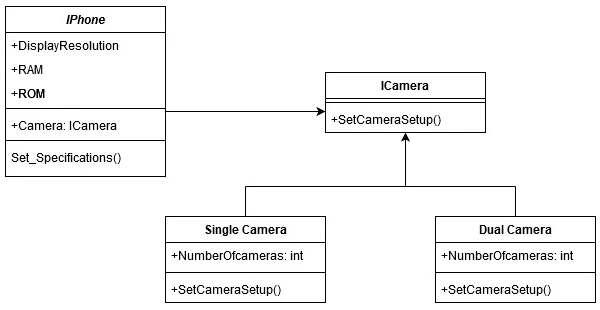
The Dependency Inversion promotes the idea that high-level modules should not depend on low-level modules, but both should depend on abstraction class. In C#, this often involves using dependency injection to invert the traditional control flow, allowing for more flexible and testable code.
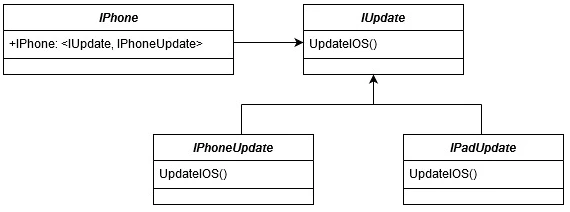
SOLID principles provide a roadmap for designing clean and maintainable code. One should not blindly follow them in every situation but instead apply them judiciously based on the context of a given application.
The Single Responsibility Principle can be beneficial when designing classes in a C# application. Ensuring that each class has a single responsibility makes the code more modular and easier to understand. This modularity is beneficial for maintenance and makes adding new features or fixing bugs without affecting the entire codebase simpler.
The Open/Closed Principle applies when code needs extended but not modified. Using interfaces and abstract classes, developers in C# can create adaptable systems without changing existing code.
Liskov Substitution Principle ensures that derived classes can be seamlessly substituted for their base classes, promoting a more flexible and scalable codebase. Applying the Liskov Substitution Principle is particularly important when polymorphism is crucial.
The Interface Segregation Principle encourages the creation of small, specific interfaces tailored to the needs of the classes that implement them. This approach prevents the imposition of unnecessary methods on classes, promoting a more efficient and maintainable design.
2.5. Dependency Inversion Principle (DIP)
The Dependency Inversion Principle, through dependency injection, facilitates the creation of loosely coupled components in a C# application. Implementing this principle reduces the overall complexity of the code and enhances its testability.
using System;
public abstract class Shape
{
public abstract double Area();
}
class Circle : Shape
{
public double Radius { get; set; }
public override double Area() => Math.PI * Math.Pow(Radius, 2);
}
class Rectangle : Shape
{
public double Width { get; set; }
public double Height { get; set; }
public override double Area() => Width * Height;
}
class AreaCalculator
{
public double CalculateArea(Shape shape) => shape.Area();
}
interface ILogger
{
void Log(string message); // interface segregation principle d
}
class ConsoleLogger : ILogger
{
public void Log(string message) => Console.WriteLine($"Log: {message}");
}
class FileLogger : ILogger
{
public void Log(string message) => Console.WriteLine($"File Log: {message}");
}
class UserService
{
private readonly ILogger logger;
public UserService(ILogger logger) => this.logger = logger;
public void CreateUser()
{
logger.Log("User created successfully");
}
}
class EmailService
{
private readonly ILogger logger;
public EmailService(ILogger logger) => this.logger = logger;
public void SendEmail()
{
logger.Log("Email sent successfully");
}
}using System;
public abstract class Shape
{
public abstract double Area();
}
class Circle : Shape
{
public double Radius { get; set; }
public override double Area() => Math.PI * Math.Pow(Radius, 2);
}
class Rectangle : Shape
{
public double Width { get; set; }
public double Height { get; set; }
public override double Area() => Width * Height;
}
class AreaCalculator
{
public double CalculateArea(Shape shape) => shape.Area();
}
interface ILogger
{
void Log(string message); // interface segregation principle d
}
class ConsoleLogger : ILogger
{
public void Log(string message) => Console.WriteLine($"Log: {message}");
}
class FileLogger : ILogger
{
public void Log(string message) => Console.WriteLine($"File Log: {message}");
}
class UserService
{
private readonly ILogger logger;
public UserService(ILogger logger) => this.logger = logger;
public void CreateUser()
{
logger.Log("User created successfully");
}
}
class EmailService
{
private readonly ILogger logger;
public EmailService(ILogger logger) => this.logger = logger;
public void SendEmail()
{
logger.Log("Email sent successfully");
}
}Imports System
Public MustInherit Class Shape
Public MustOverride Function Area() As Double
End Class
Friend Class Circle
Inherits Shape
Public Property Radius() As Double
Public Overrides Function Area() As Double
Return Math.PI * Math.Pow(Radius, 2)
End Function
End Class
Friend Class Rectangle
Inherits Shape
Public Property Width() As Double
Public Property Height() As Double
Public Overrides Function Area() As Double
Return Width * Height
End Function
End Class
Friend Class AreaCalculator
Public Function CalculateArea(ByVal shape As Shape) As Double
Return shape.Area()
End Function
End Class
Friend Interface ILogger
Sub Log(ByVal message As String) ' interface segregation principle d
End Interface
Friend Class ConsoleLogger
Implements ILogger
Public Sub Log(ByVal message As String) Implements ILogger.Log
Console.WriteLine($"Log: {message}")
End Sub
End Class
Friend Class FileLogger
Implements ILogger
Public Sub Log(ByVal message As String) Implements ILogger.Log
Console.WriteLine($"File Log: {message}")
End Sub
End Class
Friend Class UserService
Private ReadOnly logger As ILogger
Public Sub New(ByVal logger As ILogger)
Me.logger = logger
End Sub
Public Sub CreateUser()
logger.Log("User created successfully")
End Sub
End Class
Friend Class EmailService
Private ReadOnly logger As ILogger
Public Sub New(ByVal logger As ILogger)
Me.logger = logger
End Sub
Public Sub SendEmail()
logger.Log("Email sent successfully")
End Sub
End ClassIn this code snippet, a clear application of Object-Oriented Programming (OOP) principles, specifically SOLID principles, is evident. The Shape class serves as an abstract base class, defining the common concept of shapes and declaring the abstract method Area(). The term "child class or derived class," refers to Circle and Rectangle classes, as they inherit from the common parent class. Both Circle and Rectangle act as derived classes, extending the functionality of the abstract base class and providing concrete implementations of the Area() method. Moreover, the code exemplifies the principles of SOLID, such as the Single Responsibility Principle (SRP), where each class has a distinct responsibility, and the Dependency Inversion Principle (DIP), as demonstrated in the usage of the ILogger interface, fostering flexibility and maintainability.
Now that we've explored the SOLID principles in theory, let's delve into their practical application in C# using IronPDF, a popular library for working with PDFs. IronPDF allows developers to create, manipulate, and process PDF documents seamlessly in C#. By integrating SOLID principles, we can ensure that our code remains modular, extensible, and maintainable.
IronPDF excels in HTML to PDF conversion, ensuring precise preservation of original layouts and styles. It's perfect for creating PDFs from web-based content such as reports, invoices, and documentation. With support for HTML files, URLs, and raw HTML strings, IronPDF easily produces high-quality PDF documents.
using IronPdf;
class Program
{
static void Main(string[] args)
{
var renderer = new ChromePdfRenderer();
// 1. Convert HTML String to PDF
var htmlContent = "<h1>Hello, IronPDF!</h1><p>This is a PDF from an HTML string.</p>";
var pdfFromHtmlString = renderer.RenderHtmlAsPdf(htmlContent);
pdfFromHtmlString.SaveAs("HTMLStringToPDF.pdf");
// 2. Convert HTML File to PDF
var htmlFilePath = "path_to_your_html_file.html"; // Specify the path to your HTML file
var pdfFromHtmlFile = renderer.RenderHtmlFileAsPdf(htmlFilePath);
pdfFromHtmlFile.SaveAs("HTMLFileToPDF.pdf");
// 3. Convert URL to PDF
var url = "http://ironpdf.com"; // Specify the URL
var pdfFromUrl = renderer.RenderUrlAsPdf(url);
pdfFromUrl.SaveAs("URLToPDF.pdf");
}
}using IronPdf;
class Program
{
static void Main(string[] args)
{
var renderer = new ChromePdfRenderer();
// 1. Convert HTML String to PDF
var htmlContent = "<h1>Hello, IronPDF!</h1><p>This is a PDF from an HTML string.</p>";
var pdfFromHtmlString = renderer.RenderHtmlAsPdf(htmlContent);
pdfFromHtmlString.SaveAs("HTMLStringToPDF.pdf");
// 2. Convert HTML File to PDF
var htmlFilePath = "path_to_your_html_file.html"; // Specify the path to your HTML file
var pdfFromHtmlFile = renderer.RenderHtmlFileAsPdf(htmlFilePath);
pdfFromHtmlFile.SaveAs("HTMLFileToPDF.pdf");
// 3. Convert URL to PDF
var url = "http://ironpdf.com"; // Specify the URL
var pdfFromUrl = renderer.RenderUrlAsPdf(url);
pdfFromUrl.SaveAs("URLToPDF.pdf");
}
}Imports IronPdf
Friend Class Program
Shared Sub Main(ByVal args() As String)
Dim renderer = New ChromePdfRenderer()
' 1. Convert HTML String to PDF
Dim htmlContent = "<h1>Hello, IronPDF!</h1><p>This is a PDF from an HTML string.</p>"
Dim pdfFromHtmlString = renderer.RenderHtmlAsPdf(htmlContent)
pdfFromHtmlString.SaveAs("HTMLStringToPDF.pdf")
' 2. Convert HTML File to PDF
Dim htmlFilePath = "path_to_your_html_file.html" ' Specify the path to your HTML file
Dim pdfFromHtmlFile = renderer.RenderHtmlFileAsPdf(htmlFilePath)
pdfFromHtmlFile.SaveAs("HTMLFileToPDF.pdf")
' 3. Convert URL to PDF
Dim url = "http://ironpdf.com" ' Specify the URL
Dim pdfFromUrl = renderer.RenderUrlAsPdf(url)
pdfFromUrl.SaveAs("URLToPDF.pdf")
End Sub
End ClassConsider the Single Responsibility Principle. When working with IronPDF, it's beneficial to have classes that handle specific aspects of PDF generation or manipulation. For instance, one class could create PDF documents, while another focuses on adding and formatting content.
The Open/Closed Principle encourages us to design our PDF-related classes with extension in mind. Instead of modifying existing classes to accommodate new features, we can create classes that extend or implement existing interfaces. This way, we adhere to the principle without compromising the existing functionality.
The Liskov Substitution Principle comes into play when dealing with different types of PDF elements. Whether it's text, images, or annotations, designing classes that adhere to a common interface allows for seamless substitution and enhances the flexibility of our PDF generation code. The Interface Segregation Principle is essential when defining contracts for classes that interact with IronPDF. By creating small, specific interfaces tailored to the needs of different components, we avoid unnecessary dependencies and ensure that classes only implement the methods they require.
Finally, applying the Dependency Inversion Principle can improve the testability and maintainability of our code. By injecting dependencies rather than hardcoding them, we create a more loosely coupled system that is easier to update and extend.
Let's illustrate these concepts with a simple code example using IronPDF:
using IronPdf;
using System;
// Interface for PDF creation
public interface IPdfCreator
{
void CreatePdf(string filePath,string content);
}
// Concrete implementation using IronPDF
public class IronPdfCreator : IPdfCreator
{
public void CreatePdf(string filePath,string content)
{ // IronPDF-specific code for creating a PDF
var renderer = new ChromePdfRenderer();
var pdf = renderer.RenderHtmlAsPdf(content);
pdf.SaveAs(filePath);
}
}
// Service adhering to Single Responsibility Principle
public class PdfGenerationService
{
private readonly IPdfCreator pdfCreator;
public PdfGenerationService(IPdfCreator pdfCreator)
{
this.pdfCreator = pdfCreator;
}
public void GeneratePdfDocument(string filePath)
{
// Business logic for generating content
string content = "<p>This PDF is generated using IronPDF and follows SOLID principles.</p>";
// Delegate the PDF creation to the injected dependency
pdfCreator.CreatePdf(filePath,content);
Console.WriteLine($"PDF generated successfully at {filePath}");
}
}
class Program
{
static void Main()
{
// Dependency injection using the Dependency Inversion Principle
IPdfCreator ironPdfCreator = new IronPdfCreator();
PdfGenerationService pdfService = new PdfGenerationService(ironPdfCreator);
// Generate PDF using the service
string pdfFilePath = "output.pdf";
pdfService.GeneratePdfDocument(pdfFilePath);
Console.ReadLine(); // To prevent the console window from closing immediately
}
}
using IronPdf;
using System;
// Interface for PDF creation
public interface IPdfCreator
{
void CreatePdf(string filePath,string content);
}
// Concrete implementation using IronPDF
public class IronPdfCreator : IPdfCreator
{
public void CreatePdf(string filePath,string content)
{ // IronPDF-specific code for creating a PDF
var renderer = new ChromePdfRenderer();
var pdf = renderer.RenderHtmlAsPdf(content);
pdf.SaveAs(filePath);
}
}
// Service adhering to Single Responsibility Principle
public class PdfGenerationService
{
private readonly IPdfCreator pdfCreator;
public PdfGenerationService(IPdfCreator pdfCreator)
{
this.pdfCreator = pdfCreator;
}
public void GeneratePdfDocument(string filePath)
{
// Business logic for generating content
string content = "<p>This PDF is generated using IronPDF and follows SOLID principles.</p>";
// Delegate the PDF creation to the injected dependency
pdfCreator.CreatePdf(filePath,content);
Console.WriteLine($"PDF generated successfully at {filePath}");
}
}
class Program
{
static void Main()
{
// Dependency injection using the Dependency Inversion Principle
IPdfCreator ironPdfCreator = new IronPdfCreator();
PdfGenerationService pdfService = new PdfGenerationService(ironPdfCreator);
// Generate PDF using the service
string pdfFilePath = "output.pdf";
pdfService.GeneratePdfDocument(pdfFilePath);
Console.ReadLine(); // To prevent the console window from closing immediately
}
}
Imports IronPdf
Imports System
' Interface for PDF creation
Public Interface IPdfCreator
Sub CreatePdf(ByVal filePath As String, ByVal content As String)
End Interface
' Concrete implementation using IronPDF
Public Class IronPdfCreator
Implements IPdfCreator
Public Sub CreatePdf(ByVal filePath As String, ByVal content As String) Implements IPdfCreator.CreatePdf ' IronPDF-specific code for creating a PDF
Dim renderer = New ChromePdfRenderer()
Dim pdf = renderer.RenderHtmlAsPdf(content)
pdf.SaveAs(filePath)
End Sub
End Class
' Service adhering to Single Responsibility Principle
Public Class PdfGenerationService
Private ReadOnly pdfCreator As IPdfCreator
Public Sub New(ByVal pdfCreator As IPdfCreator)
Me.pdfCreator = pdfCreator
End Sub
Public Sub GeneratePdfDocument(ByVal filePath As String)
' Business logic for generating content
Dim content As String = "<p>This PDF is generated using IronPDF and follows SOLID principles.</p>"
' Delegate the PDF creation to the injected dependency
pdfCreator.CreatePdf(filePath,content)
Console.WriteLine($"PDF generated successfully at {filePath}")
End Sub
End Class
Friend Class Program
Shared Sub Main()
' Dependency injection using the Dependency Inversion Principle
Dim ironPdfCreator As IPdfCreator = New IronPdfCreator()
Dim pdfService As New PdfGenerationService(ironPdfCreator)
' Generate PDF using the service
Dim pdfFilePath As String = "output.pdf"
pdfService.GeneratePdfDocument(pdfFilePath)
Console.ReadLine() ' To prevent the console window from closing immediately
End Sub
End ClassTo run this code, ensure you install the IronPDF library in your project. You can do this using the NuGet Package Manager:
Install-Package IronPdf
Replace the content and logic in the PdfGenerationService class with your specific requirements.
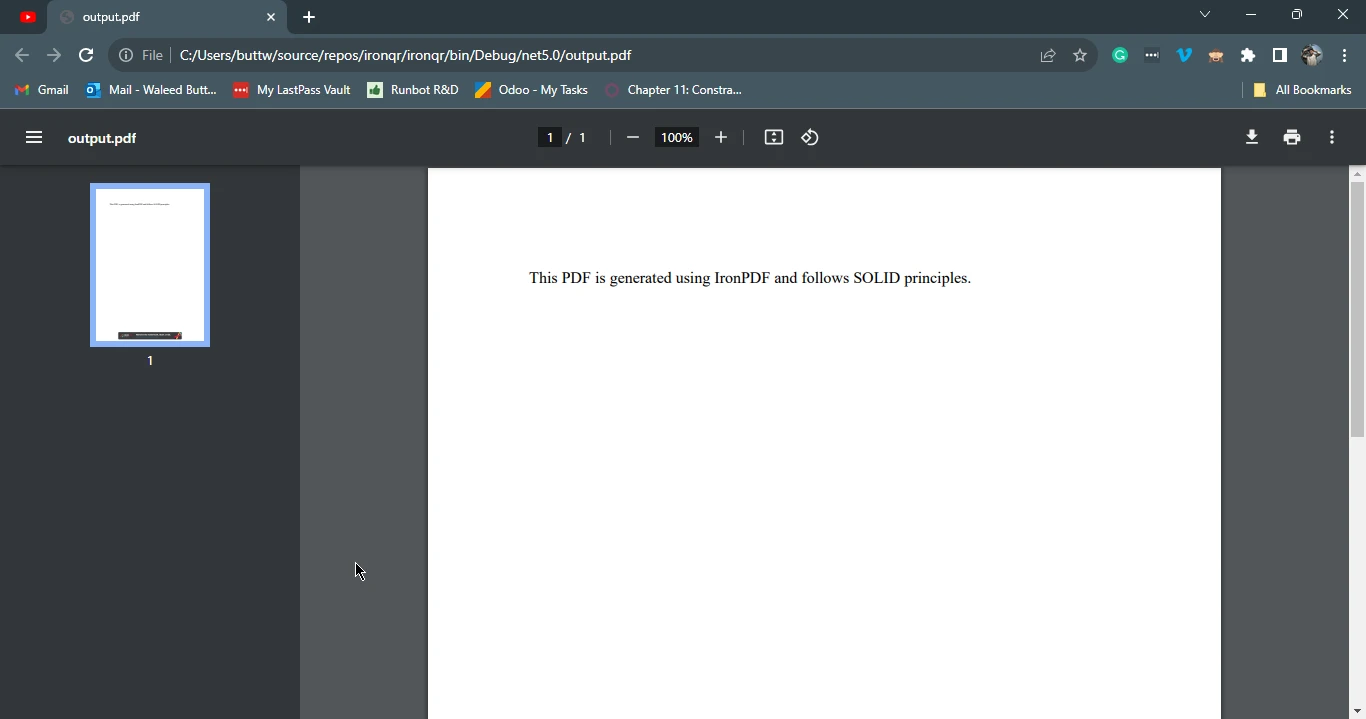
In conclusion, SOLID principles provide a solid foundation for designing maintainable and scalable software in C#. By understanding and applying these principles, developers can create more modular code, adaptable to change and more accessible to test.
When working with libraries like IronPDF, integrating SOLID principles becomes even more crucial. Designing classes that adhere to these principles ensures that your code remains flexible and can evolve with the changing requirements of your PDF-related tasks.
As you continue to develop C# applications, keep in mind the SOLID principles as guidelines for crafting code that stands the test of time. Whether you're working on PDF generation, database interactions, or any other aspect of software development, SOLID principles provide a roadmap to building functional and maintainable code in the long run.
To know more about the IronPDF library, Visit IronPDF Documentation. To learn about the license and get a free trial, visit the IronPDF licensing page.